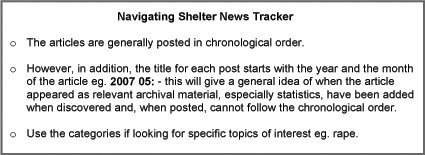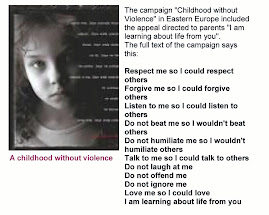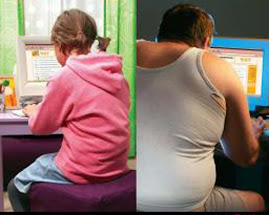

Friday, 6 April 2007
2007 01: Spotlight: The Malaysians living in limbo
NST online. Local News. 29/01/07
By : Sonia Ramachandran, Suganthi Suparmaniam and Chan Ming Yang
PETALING JAYA: They have no birth certificates nor identity cards. And though they were born here, they enjoy none of the rights of citizens.
In the past two years, more than 3,000 "stateless" people have sought the help of various organisations to legalise themselves or their children. Then, they hope to go to school, get jobs, open a bank account, or go to a hospital and pay local rates.
The 3,000 are just the tip of the iceberg. There are thousands more, mostly poor and illiterate, living in kampung and squatter areas around the country — hoping they won’t be caught by the authorities and treated as illegal immigrants.Era Consumer director Nanthini Ramalo said the problem with birth certificates arose when a child was born out of wedlock. The National Registration Department (NRD) requires the presence of the child’s biological mother for the birth to be registered, as the child’s citizenship follows the mother.
If the mother is not Malaysian, a child can obtain a birth certificate but not citizenship rights. Citizenship requires a Malaysian father to adopt a child legally. If a child is given away, the biological parents must be present when the adoptive parents register the birth, which must be done within 14 days.
If married parents register a birth after 42 days, they must present their identity cards, marriage certificate, birth certificates of other biological children and photos of all family members.
The parents then have to declare before a commissioner for oaths reasons for the late registration. A hospital or clinic card as proof of the child’s birth is also needed, failing which a witness must be produced before a commissioner for oaths.
For a child born out of wedlock, the mother must produce her IC, prenatal card, photographs and birth certificates of her other children.
If the baby was not born in a hospital, she must produce a witness. The Constitution states that every child has a right to a birth certificate but the reality is that if parents do not have all the required documentation, the application is often rejected by the NRD.
Ignorance and illiteracy were the main problems, Ramalo said.
"Most rural folk are afraid to come forward as they don’t have any documents. If they go to the NRD they are afraid to speak up. Those who can read, look at the requirements and are afraid to come forward if they can’t fulfil them." She called for a nationwide campaign, especially in rural areas, informing people of the importance of a birth certificate and its requirements.
MCA Public Service and Complaints Department head Datuk Michael Chong said most of the cases he handled involved adoption. "They tell me the child was given to them. They put their names down as the parents and run into problems later. "In the end, it is the child who suffers. He is holding a green (temporary resident) identity card," said Chong, adding that the department had helped many parents trace the biological parents and got lawyers to file for adoption.
He appealed to Home Affairs Minister Datuk Mohd Radzi Sheikh Ahmad to help these children.
"The children should not be penalised for the parents’ mistakes." Some can’t go to school. Some attended school up to Year Five with the help of sympathetic school heads, he said. But when they reach Year Six they have to stop because they don’t have the documents to sit the Ujian Pencapaian Sekolah Rendah exam.
Kuala Langat MIC Youth leader K. Krishnamurthi asked for leniency."If a child is below 10 and one parent is Malaysian, the NRD should give him a birth certificate," he said. Minor details, such as spelling mistakes in the birth certificate, should be corrected and not used as a reason to deny a child an IC. Deputy Home Affairs Minister Datuk Tan Chai Ho said spelling errors in birth certificates could be rectified as long as the parents’ identity card details were correct.
"The parents’ nationality is important. That’s why we need their IC to determine a child’s citizenship. "Some only apply for a birth certificate when the child is 10. We have to investigate the case. Any child born here is entitled to a birth certificate but it doesn’t entitle him to citizenship," he said.
If the parents are legally married, and either is Malaysian, then a child is Malaysian.
Traditional marriages before 1982, which were not registered, are considered legal. But if a child is born out of wedlock, he follows the citizenship of the mother.
He said people without birth certificates could apply to the NRD. It will then check the parents’ background. "Depending on the evidence, there is a possibility the child could be given permanent residence (PR)."People without any legal documents whose parents cannot be traced can apply to the NRD for PR. The final approval lies with the ministry.
For couples passing off someone else’s child as their own and now face problems getting the child an IC, they would have to obtain another birth certificate and adopt the child legally.
The new birth certificate will have "no details available" in the parent column. If the application is successful, the child may be granted PR. With that piece of paper, he or she can go to school, open a bank account and get a job later. If not, it is back to square one.
Late registration of birth (after 42 days)
- Application procedure
Applicants are required to go to the NRD with the following documents:
1. Result of the Register Search at NRD of the person applying for the birth certificate
2. Statutory Declaration of 2 witnesses
3. Documentary proof of birth such as prenatal card, doctor's/midwife's declaration
4. Parents' marriage certificate
5. Copies of parents' identity cards
6. Copies of birth certificates of siblings
7. Passport-sized photo of mother, father, the child and siblings
8. Postcard-sized full photo of the child
9. Declaration of 2 witnesses
10. Certified copy of school leaving certificate/extract from the school register, if relevant
By : Sonia Ramachandran, Suganthi Suparmaniam and Chan Ming Yang
PETALING JAYA: They have no birth certificates nor identity cards. And though they were born here, they enjoy none of the rights of citizens.
In the past two years, more than 3,000 "stateless" people have sought the help of various organisations to legalise themselves or their children. Then, they hope to go to school, get jobs, open a bank account, or go to a hospital and pay local rates.
The 3,000 are just the tip of the iceberg. There are thousands more, mostly poor and illiterate, living in kampung and squatter areas around the country — hoping they won’t be caught by the authorities and treated as illegal immigrants.Era Consumer director Nanthini Ramalo said the problem with birth certificates arose when a child was born out of wedlock. The National Registration Department (NRD) requires the presence of the child’s biological mother for the birth to be registered, as the child’s citizenship follows the mother.
If the mother is not Malaysian, a child can obtain a birth certificate but not citizenship rights. Citizenship requires a Malaysian father to adopt a child legally. If a child is given away, the biological parents must be present when the adoptive parents register the birth, which must be done within 14 days.
If married parents register a birth after 42 days, they must present their identity cards, marriage certificate, birth certificates of other biological children and photos of all family members.
The parents then have to declare before a commissioner for oaths reasons for the late registration. A hospital or clinic card as proof of the child’s birth is also needed, failing which a witness must be produced before a commissioner for oaths.
For a child born out of wedlock, the mother must produce her IC, prenatal card, photographs and birth certificates of her other children.
If the baby was not born in a hospital, she must produce a witness. The Constitution states that every child has a right to a birth certificate but the reality is that if parents do not have all the required documentation, the application is often rejected by the NRD.
Ignorance and illiteracy were the main problems, Ramalo said.
"Most rural folk are afraid to come forward as they don’t have any documents. If they go to the NRD they are afraid to speak up. Those who can read, look at the requirements and are afraid to come forward if they can’t fulfil them." She called for a nationwide campaign, especially in rural areas, informing people of the importance of a birth certificate and its requirements.
MCA Public Service and Complaints Department head Datuk Michael Chong said most of the cases he handled involved adoption. "They tell me the child was given to them. They put their names down as the parents and run into problems later. "In the end, it is the child who suffers. He is holding a green (temporary resident) identity card," said Chong, adding that the department had helped many parents trace the biological parents and got lawyers to file for adoption.
He appealed to Home Affairs Minister Datuk Mohd Radzi Sheikh Ahmad to help these children.
"The children should not be penalised for the parents’ mistakes." Some can’t go to school. Some attended school up to Year Five with the help of sympathetic school heads, he said. But when they reach Year Six they have to stop because they don’t have the documents to sit the Ujian Pencapaian Sekolah Rendah exam.
Kuala Langat MIC Youth leader K. Krishnamurthi asked for leniency."If a child is below 10 and one parent is Malaysian, the NRD should give him a birth certificate," he said. Minor details, such as spelling mistakes in the birth certificate, should be corrected and not used as a reason to deny a child an IC. Deputy Home Affairs Minister Datuk Tan Chai Ho said spelling errors in birth certificates could be rectified as long as the parents’ identity card details were correct.
"The parents’ nationality is important. That’s why we need their IC to determine a child’s citizenship. "Some only apply for a birth certificate when the child is 10. We have to investigate the case. Any child born here is entitled to a birth certificate but it doesn’t entitle him to citizenship," he said.
If the parents are legally married, and either is Malaysian, then a child is Malaysian.
Traditional marriages before 1982, which were not registered, are considered legal. But if a child is born out of wedlock, he follows the citizenship of the mother.
He said people without birth certificates could apply to the NRD. It will then check the parents’ background. "Depending on the evidence, there is a possibility the child could be given permanent residence (PR)."People without any legal documents whose parents cannot be traced can apply to the NRD for PR. The final approval lies with the ministry.
For couples passing off someone else’s child as their own and now face problems getting the child an IC, they would have to obtain another birth certificate and adopt the child legally.
The new birth certificate will have "no details available" in the parent column. If the application is successful, the child may be granted PR. With that piece of paper, he or she can go to school, open a bank account and get a job later. If not, it is back to square one.
Late registration of birth (after 42 days)
- Application procedure
Applicants are required to go to the NRD with the following documents:
1. Result of the Register Search at NRD of the person applying for the birth certificate
2. Statutory Declaration of 2 witnesses
3. Documentary proof of birth such as prenatal card, doctor's/midwife's declaration
4. Parents' marriage certificate
5. Copies of parents' identity cards
6. Copies of birth certificates of siblings
7. Passport-sized photo of mother, father, the child and siblings
8. Postcard-sized full photo of the child
9. Declaration of 2 witnesses
10. Certified copy of school leaving certificate/extract from the school register, if relevant
Subscribe to:
Post Comments (Atom)



No comments:
Post a Comment